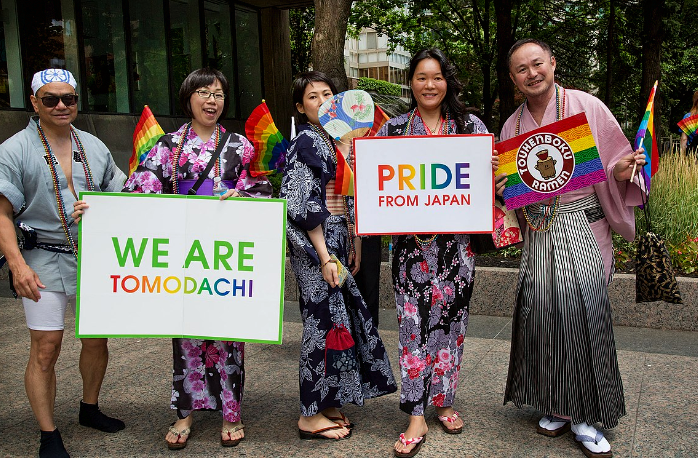Japan Court: Same-Sex Union Ban at Odds with Constitution
On Thursday, the Fukuoka District Court in southern Japan said that the ban on same-sex marriage presents the country with an "unconstitutional situation."

Facts
- On Thursday, the Fukuoka District Court in southern Japan said that the ban on same-sex marriage presents the country with an "unconstitutional situation."1
- Falling short of stating the ban was unconstitutional, the court ruled that Japan's marriage laws violate a section of the Constitution's Article 24 that refers to "individual dignity and equality of the sexes."2
- In a case brought by three same-sex couples against the state, the judge said that to ensure same-sex couples' dignity is respected, "various considerations are necessary," including Japan's same-sex partnership system.3
- However, the court rejected the plaintiff's demands the government pay ¥1M (about $7K) each in damages for denying them the right to marry.4
- The ruling comes as Japan's parliament is mulling legislation on "promoting understanding" of LGBTQ+ rights, saying "unjust discrimination" towards sexual minorities must stop.5
- Though Japan is the only G7 nation yet to recognize same-sex unions legally, more than 300 municipalities, including Tokyo, offer some of the same benefits to same-sex couples as married ones.6
Sources: 1Barrons, 2Guardian, 3Nikkei Asia, 4ABC News, 5Japan Today, and 6Al Jazeera.
Narratives
- Narrative A, as provided by Reuters. Not allowing same-sex marriage is unconstitutional. Period. The latest ruling sends a strong message and should be enough to pressure the government to change the law which violates same-sex couples' fundamental rights by denying them legal protection. This ruling may be a step forward but Japan's situation is still disappointing.
- Narrative B, as provided by The Morning Sun. The ban on same-sex marriage is in keeping with the constitution, which guarantees heterosexual couples the right to marry under Article 24. Allowing same-sex couples to marry legally would fundamentally change Japanese society and values, which is why the government must avoid making hasty decisions regarding gender equality and sexual diversity.






